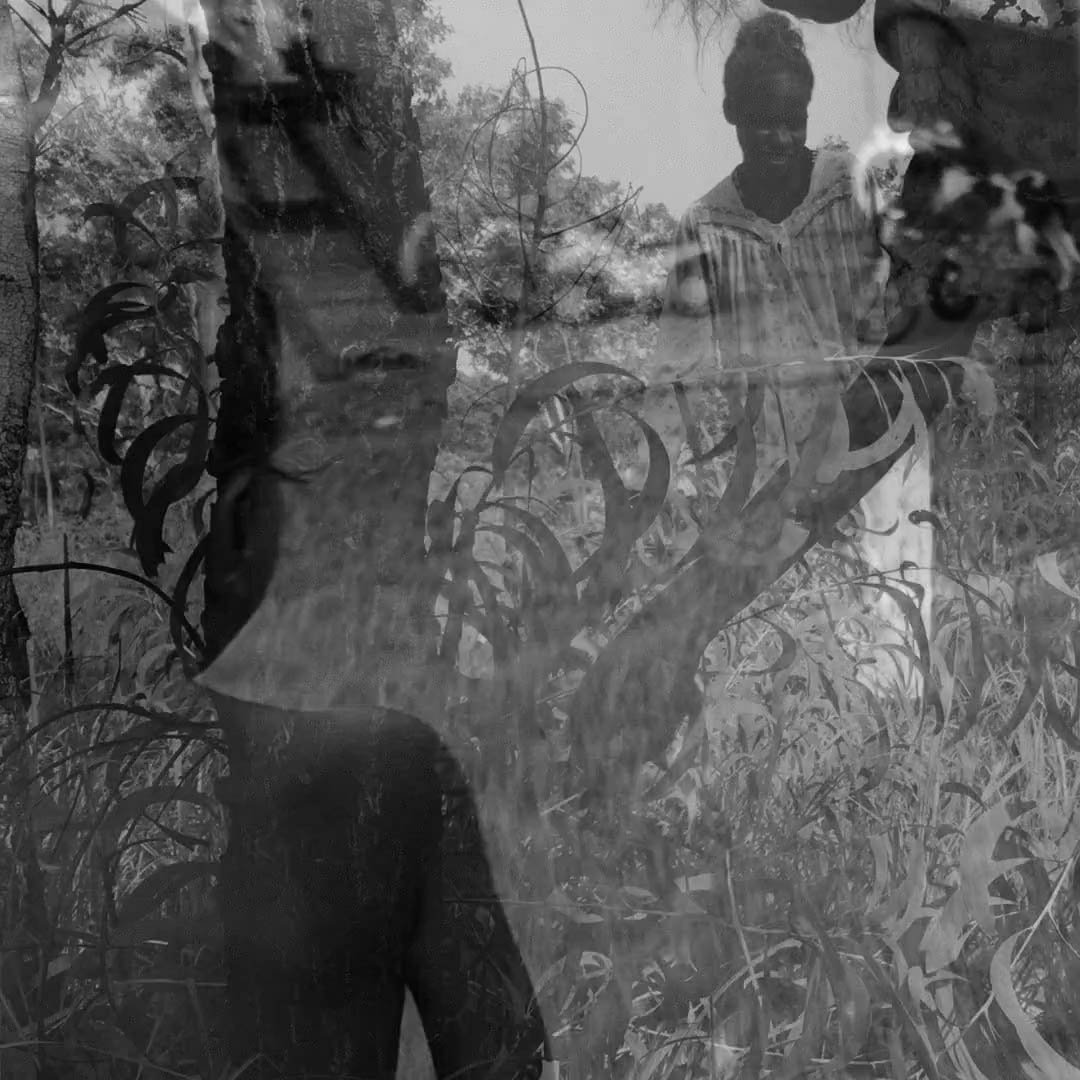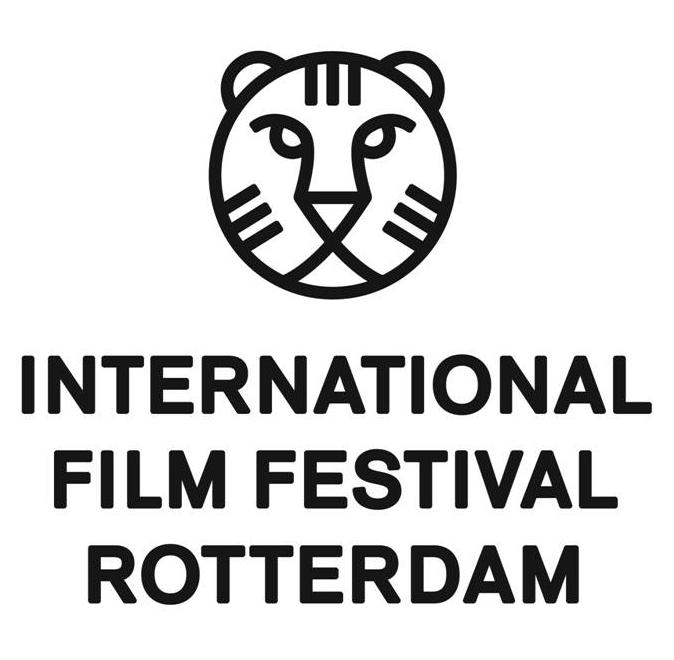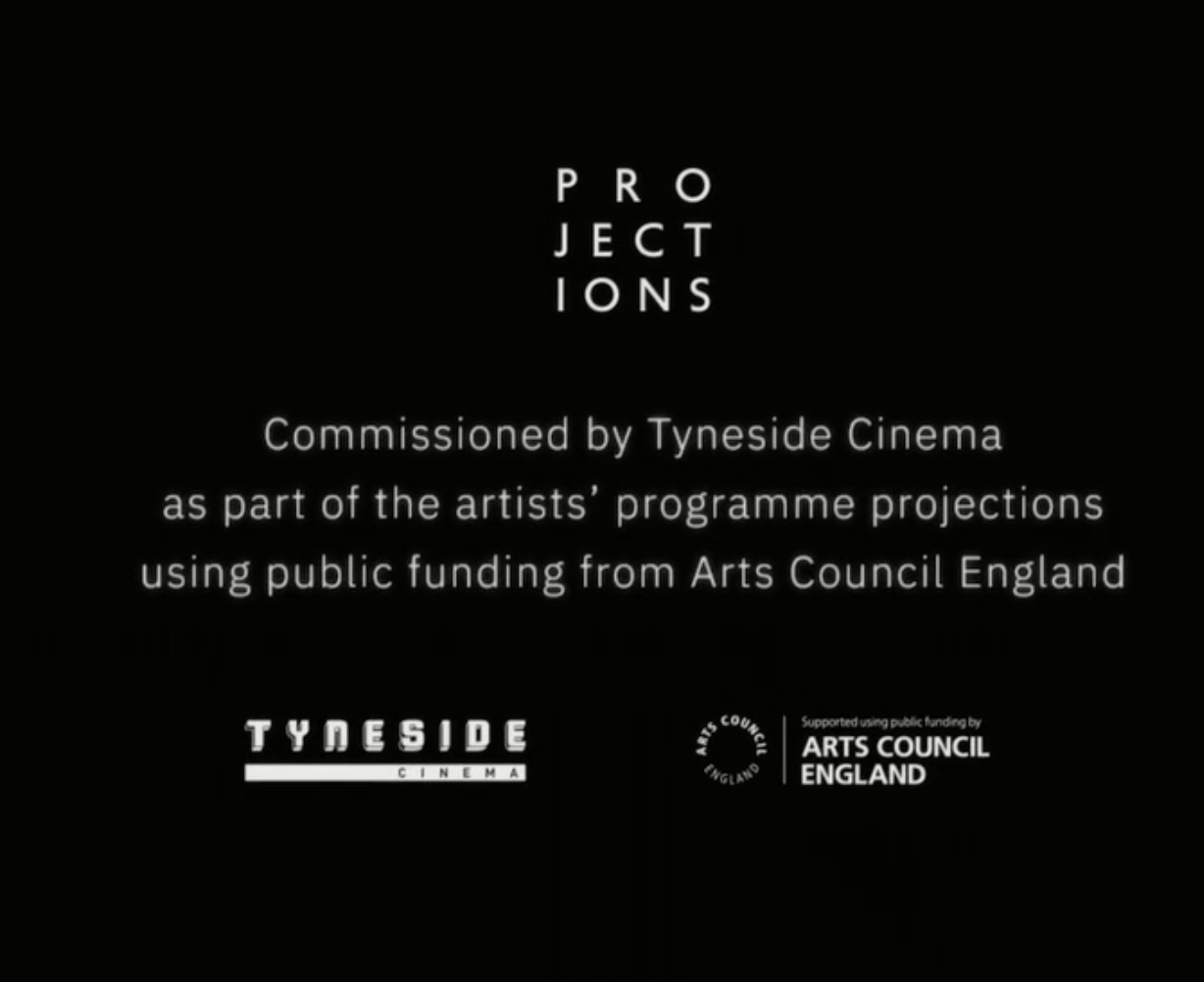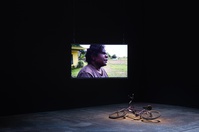Karrabing Film Collective
Northern Territory
2021
Displayed 2021 at Carriageworks

Karrabing Film Collective
Established 2010, Northern Territory. Live and work on the north-western coast of the Northern Territory
Cameron Bainamu, Gavin Bianamu, Sheree Bianamu, Telish Bianamu, Trevor Bianamu, Danielle Bigfoot, Kelvin Bigfoot, Rex Edmunds, Claudette Gordon, Ryan Gordon, Claude Holtze, Ethan Jorrock, Marcus Jorrock, Melissa Jorrock, Reggie Jorrock, Patsy Anne Jorrock, Daryl Lane, Lorraine Lane, Robyn Lane, Angelina Lewis, Cecilia Lewis, Marcia Lewis, Natasha Lewis, Elizabeth A Povinelli, Quentin Shields, Aiden Sing, Kieran Sing, Shannon Sing, Rex Sing, Daphne Yarrowin, Linda Yarrowin, Roger Yarrowin and Sandra Yarrowin
Karrabing Film Collective are an Indigenous media group who use filmmaking to interrogate the conditions of inequality for Aboriginal people in the Northern Territory and to retain connections to land and their Ancestors. Composed of more than 30 extended family members – whose ancestral lands stretch across saltwaters and inlands and the Italian Alps – Karrabing creates films using an ‘improvisational realism’ that opens a space beyond binaries of the fictional and the documentary, the past and the present. Meaning ‘low tide’ in the Emmiyengal language, ‘karrabing’ refers to a form of collectivity outside of government-imposed strictures of clanship or land ownership.
Artist text
by Karrabing Film Collective
Following is a transcript of a video interview conducted by Karrabing Film Collective in February 2021. Speakers include Sandra Mumbil Yarrowin, Rex Edmunds, Cecilia Lewis, Linda Yarrowin, Natasha Bigfoot Lewis with Rex Sing, Georgia Yarrowin, Katrina Lewis, Deborah Sing, Danielle Lane, Robyn Lane, Cameron Bianamu, Trevor Bianamu, Shekinah Lewis, Kelvin Bigfoot.
Sandra Mumbil Yarrowin (SMY): Karrabing means low tide turning in the Emmi language.
Cecilia Lewis (CL): Like we have Suntu group who are Kiyuk. They have their own place, own story about their own Country. We have Trevor mob. They have their own Country. Their own language. Their own story. We have Bwudjut mob. They have their own story. Emmiyengal have their own story here at Mabaluk. Menthayengal have their own story. All the Sugarbag mob. But we are still one mob.
Rex Edmunds (RE): And there’s the story of the …
CL: Even though we have different languages and land … We’re all connected into one group.
RE: … that story about the durlg and the fire.
CL: That makes us Karrabing.
Video subtitle: If you know … you know where they all MEET … WHY and what ALWAYS HAPPENS …
RE: If certain people have certain little areas, nevertheless everyone should agree to any action … say that belongs to certain people, but we’re still one big family. We’re still all connected.
White people introduced the idea … and forced people to say that the land is just for that people … and certain people get … and you have traditional for that little area and traditional owners for all kind of areas.
Unknown female voice (a telephone call): Good day, state control over Indigenous lands. Can I help you?
RE: Somebody has locked the bloody gate here.
Unknown female voice (a telephone call): Yes you have to have the paperwork filled out … You have to have an anthropologist go over your claim …
RE: Ah, true, I have to ask those people to go to my Country?
Unknown female voice (a telephone call): Look, it’s the law.
RE: Everyone’s a traditional owner of a little bit of land. Traditional owner of that little bit of land … Then we get big arguments, spear fights, everyone killing each other.
Unknown female voice (a telephone call): I can’t hear you. I can’t hear you.
CL: When people don’t go back and mind their Country properly … don’t go back and attend to their Ancestors, Countries shut themselves up. They hide everything. Then you go back there and the Ancestors hide everything now.
SMY: That place must be thinking like that. ‘Ah, you never came here for a long time. You only think about yourself.’ ‘You don’t come to our Country.’ They get jealous. They get morwanhe then. But we have to go back to that Country. We have to smoke ourselves. Give our sweat to them. When we do that the Ancestors will settle down.
RE: We’re organising that now; and some painting to be set up.
Linda Yarrowin: When you go back to your Country and set up film and art … that Country comes alive again. Because the Ancestors know family have come back to their Country and they’re doing something for it; looking after the place … and the totem sites and the old rock fish traps, and everything.
RE: When we go into art, it’s like … in order to get people to understand … in a different way. A new dimension. So we went from film to art … and the art includes Dreaming sites. It tells our story and then when we go back to our Country … We see a lot of … we sort of feel spirits there. A spiritual thing. Like our Ancestors welcome us back.
SMY: Yes they’re going to feel something. Yeah. ‘Ah they put all these paintings for us from our families.’ ‘Ah, that’s good,’ maybe they’ll think to themselves. That Country will. The Ancestors and Dreamings will be proud, I think.
Natasha Bigfoot Lewis: Well, we’re giving back to the Ancestors, right? Giving back what they gave us in the beginning. Now it’s our turn to give back to them.
RE: Not only our Indigenous mob but … white people too, young kids as well.
A Day in the Life
4min
Artists' acknowledgements
This project has been supported by the International Film Festival Rotterdam and the Tyneside Cinema Projections Artist Program.



